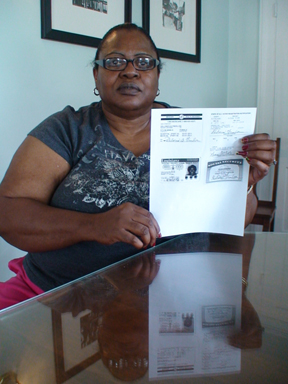By Becci Robbins
SC Progressive Network Communications Director
Contrary to a headline published widely Aug. 16, implementation of South Carolina’s new photo ID law will not be delayed.
The Associated Press reported that a recent Attorney General’s opinion on what constitutes a “reasonable impediment” to obtaining the required photo ID meant the new law would be put on hold. The AG was responding to a request by state Election Commission Director Marci Andino, who asked for clarification on “the meaning of reasonable impediment” and whether the clause would apply to voters in this year’s municipal elections.
“We can’t spend any money on the new photo voter registration cards until, and unless, the US Department of Justice preclears the law,” Andino said. She asked the AG whether the “reasonable impediment” clause would apply to all voters if the new system was not in place.
The AG’s opinion is that the new law allows voters with a “valid reason” to vote without the photo ID, and that a failure to implement the new system would indeed be a valid reason. Such voters will be required to fill out an affidavit stating the reason, and then vote a provisional ballot.
“There is nothing in the Attorney General’s opinion that delays any aspect of the new voter ID law,” said SC Progressive Network Director Brett Bursey. The opinion states that “any valid reason, beyond the voter’s control” is a “reasonable impediment.”
The confusion portends trouble in upcoming elections.
“This law was ill-conceived, poorly written, under-funded and hastily implemented,” Bursey said. “Rather than ensuring the integrity of the vote, as proponents of the new law claim, it ensures that voting will be more difficult. The AG’s opinion substantiates our concerns.”
To obtain a state-issued photo ID requires a birth certificate in the voter’s current name, or a paper trail showing legal name changes. The new law contains a provision for county election boards to provide photo voter registration cards to those already registered, waiving the requirement of a birth certificate.
“While it is good that the state is trying to work around the requirement of a birth certificate to vote,” Bursey said, “the old system worked fine, and there is no reason to subject voters to the burdens and expense of this law.”

Delores Freelon is one of 178,000 registered SC voters without a photo ID. She’s had serious problems meeting the new requirements.
Making the 178,000 currently registered voters without a photo ID cast a provisional paper ballot will mean longer lines for voters and headaches for poll workers. Each voter will have to fill out an affidavit, and then the 46 politically appointed county boards of elections will have to examine each ballot and decide if the vote should be counted.
The SC Progressive Network has been gathering comments from voters around the state having trouble meeting the new ID requirements and submitting them to the US Department of Justice. DOJ has until Aug. 29 to decide whether the law violates the Voting Rights Act. Because of South Carolina’s history of racial discrimination, all changes to voting laws must be pre-cleared by DOJ.
For background on the photo ID law and information on commenting to DOJ, see scpronet.com or call 803-808-3384.
